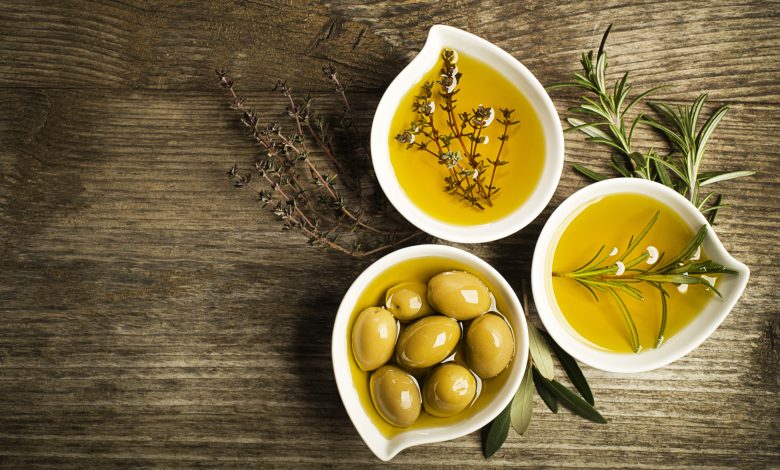Olive Oil Elegance: A Mediterranean Touch to Your Kitchen
Olive Oil Elegance: A Mediterranean Touch to Your Kitchen

In the world of culinary delights, few ingredients boast the versatility, health benefits, and timeless elegance that olive oil brings to the table. Hailing from the sun-soaked groves of the Mediterranean, this liquid gold has transcended its humble origins to become a staple in kitchens worldwide. Beyond its culinary uses, olive oil has woven itself into the fabric of a heart-healthy lifestyle, celebrated for its myriad health benefits and rich cultural history.
The Mediterranean Heritage:
To understand the true essence of olive oil, one must trace its roots back to the sun-drenched landscapes of the Mediterranean. The olive tree, known scientifically as Olea europaea, has been cultivated in this region for thousands of years. The ancient Greeks and Romans revered olive oil not only for its exceptional taste but also for its symbolic significance in rituals and ceremonies.
The Process of Olive Oil Production:
Olive oil production is an art that involves a meticulous process, from harvesting the olives to extracting the oil. The journey begins in autumn, when ripe olives are handpicked or harvested using mechanized methods. The harvested olives undergo a rigorous cleaning process to remove any leaves or debris. They are then crushed into a paste, which is subsequently pressed to extract the oil. The cold-press method, favored for preserving the oil’s quality, involves mechanical pressing without the use of heat or chemicals.
1. The Epitome of Quality:
Within the spectrum, extra virgin olive oil stands as the pinnacle of quality and flavor. It is extracted from the first cold pressing of the olives, ensuring the highest nutritional value and a distinct taste profile. Extra virgin oil is characterized by its low acidity, typically below 0.8%, and a rich blend of antioxidants, polyphenols, and monounsaturated fats, which contribute to its health-promoting properties.
2. Culinary Versatility:
One of the most remarkable attributes of olive oil is its versatility in the kitchen. Whether used as a drizzle over a fresh salad, a sautéing medium for vegetables, or a dip for crusty bread, it elevates the flavors of dishes with its unique taste and texture. Its ability to enhance both savory and sweet dishes makes it an indispensable ingredient for chefs and home cooks alike.
3. Salads and Dressings:
Olive oil takes center stage in Mediterranean salads, where it adds a luscious texture and a distinctive, fruity flavor. A simple vinaigrette made with extra virgin olive oil, balsamic vinegar, and a pinch of salt can transform a bowl of greens into a culinary masterpiece. The oil’s viscosity helps the dressing adhere to the salad ingredients, ensuring each bite is a burst of flavor.
4. Sautéing and Grilling:
It’s high smoke point makes it an excellent choice for sautéing and grilling. Its ability to withstand high temperatures without breaking down or emitting harmful compounds makes it a healthier alternative to many cooking oils. Whether you’re searing vegetables, fish, or meat, the natural richness of olive oil imparts a savory depth to the dish.
5. Baking and Desserts:
In the realm of desserts, it brings a surprising and delightful twist. From olive oil cakes to olive oil-infused brownies, the possibilities are endless. The oil’s fruity notes can complement the sweetness of desserts, offering a healthier alternative to traditional fats like butter. Oil in baking results in moist, flavorful treats that are a testament to its culinary flexibility.
6. Health Benefits:
Beyond its culinary prowess, It has long been celebrated for its numerous health benefits. The monounsaturated fats present in oil, particularly oleic acid, are associated with heart health by reducing the risk of cardiovascular diseases. The abundance of antioxidants and polyphenols in extra virgin olive oil provides anti-inflammatory and anti-oxidative effects, contributing to overall well-being.
Rich in Vitamin E, it supports skin health and has been a beauty secret in Mediterranean cultures for centuries. Its anti-inflammatory properties extend to joint health, potentially reducing the risk of conditions such as rheumatoid arthritis. The inclusion of oil in a balanced diet has also been linked to improved cognitive function, making it a valuable component for overall brain health.
7. Cultural Significance:
It is not merely a culinary ingredient; it is a symbol of Mediterranean culture and tradition. In countries like Greece, Italy, and Spain, olive oil has been intertwined with daily life for generations. The olive tree itself is often regarded as a sacred symbol, representing peace, wisdom, and prosperity. The annual olive harvest is a festive occasion, bringing communities together to celebrate their agricultural heritage.
Olive’s cultural significance extends to religious rituals and ceremonies. In many Mediterranean cultures, it is used in religious rites, symbolizing purity and divine blessings. Its association with longevity and health has contributed to its revered status in Mediterranean societies.
Choosing and Storing:
To fully savor the elegance, it’s essential to choose the right type and handle it with care. When selecting oil, opt for extra virgin olive oil for its superior quality and robust flavor. Look for oils in dark glass bottles or tin containers, as exposure to light can degrade the oil over time.
Proper storage is crucial to maintaining the freshness. Once opened, use the oil within a few months to enjoy its full spectrum of flavors and health benefits.
Conclusion:
It’s journey from ancient Mediterranean groves to contemporary kitchens is a testament to its enduring appeal and timeless elegance. Beyond its culinary contributions, oil enriches our lives with its health benefits, cultural significance, and a legacy that spans millennia. As you embark on your culinary adventures, let olive oil be the guiding light, infusing your kitchen with the warmth and sophistication of the Mediterranean.


